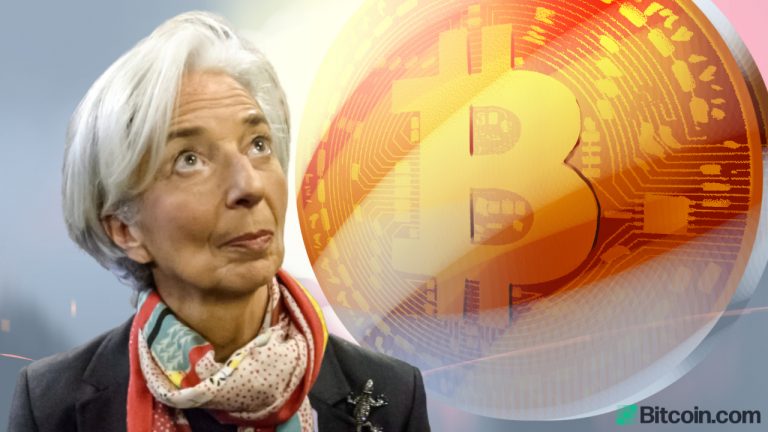
Responding to European Central Bank (ECB) President Christine Lagarde’s recent remarks about bitcoin, the chief economist at investment firm Tressis said what Lagarde implied was “outrageous” and “dangerous” for cryptocurrency regulation.
Economist Says Governments Would Be Happy to Implement Strict Crypto Regulations
Daniel Lacalle, fund manager and chief economist at Tressis Gestion, commented on Christine Lagarde’s recent remarks about bitcoin and crypto regulation in an interview with NTD Business on Sunday. Tressis Gestion provides investment management, financial planning, investment strategies, and advisory services to customers in Spain.
“Obviously, Ms. Lagarde does not have the power to implement legislation relative to cryptocurrencies,” he began. However, the economist admitted that the ECB president “is an important voice in Europe and a very important voice in the financial world. So, her comments are heard.”
Lacalle believes that “numerous governments would be very very happy to implement strict regulations on cryptocurrencies,” noting that it is “fundamentally because, as we are seeing, cryptocurrencies are rising dramatically as a response to a very aggressive policy from central banks.” He added that “the European Central Bank is probably the one that’s conducting the most aggressive monetary policy of them all,” emphasizing that “Its balance sheet is already 61% of the GDP of the eurozone, while for example the Fed’s is about 34%” The economist elaborated:
Central banks don’t like competition in the creation of money and obviously cryptocurrencies are competition and are a consequence of these aggressive monetary policies.
Lagarde’s Remarks About Bitcoin Are ‘Extremely Dangerous’ and ‘Outrageous’
When asked about how regulations would affect crypto investors, Lacalle emphasized that “regulation is not bad if it is to facilitate transparency” and to improve access to crypto assets for small investors. For regulations that improve the “level of transparency, liquidity and the availability of an asset,” he said, “That is fine.”
However, the economist warned: “I think that the problem is when they talk about regulations here, it’s more implying intervention or prohibition, complete prohibition. For example, banning the possibility of using financial measures to buy bitcoin or ethereum or other cryptocurrencies as we have seen in some economies. I think that is a dangerous path.” The fund manager exclaimed:
I think that it’s extremely dangerous that the president of a central bank implies that almost all of the investors in cryptocurrencies are in some forms trying to hide money laundering activities.
“That is absolutely outrageous when we all know that the vast majority of money laundering globally is conducted in fiat currencies, particularly in U.S. dollars and euros,” he emphasized.
Lagarde also said that bitcoin is “a highly speculative asset, which has conducted some funny business and some interesting and totally reprehensible money laundering activity.”
Responding to the ECB chief’s remarks, Lacalle opined, “you don’t hear the president of a central bank or the governor of a central bank say that it’s reprehensible and condemning an entire currency, be it the U.S. dollar, the yuan, the yen, the euro, whatever, because a small proportion of the users of that currency may be utilizing it for money laundering purposes.” Moreover, he asserted:
You cannot just make the equivalent that money laundering and bitcoin or money laundering and cryptocurrencies are one and the same. That, I think is very negative and definitely not correct.
The economist suggested that “Central banks should look at cryptocurrencies as a response to what they are doing,” pointing out that their actions are “absolutely incredible in terms of money supply growth and in terms of the impact on financial assets.” In conclusion, he suggested:
Central banks should be extremely concerned about the bubble in sovereign bonds and not about what cryptocurrencies are doing.
Do you agree with Lacalle? Let us know in the comments section below.
Comments
Post a Comment